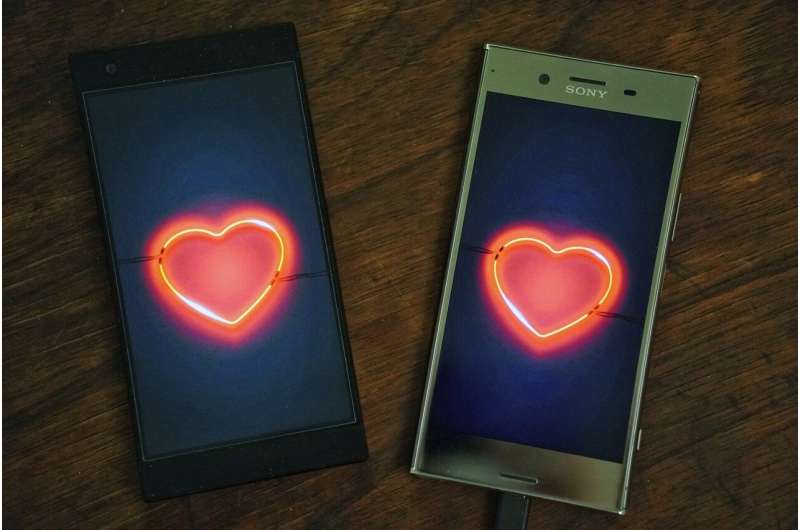
Are you entrusting your romantic future to an algorithm?
If you happen to’re utilizing any relationship apps, you’ve got most likely felt like the chances are stacked towards you discovering love. Nearly as if the app is attempting to maintain you swiping time and again.
In line with relationship scientist Dr. Gery Karantzas, your hunch might be appropriate.
Gery’s an Affiliate Professor and Director of the Science of Grownup Relationships Laboratory at Deakin College’s College of Psychology.
He says it is tough to decode the code behind your matches.
“It is very secret,” says Gery. “You’d be laborious pressed to search out any clear sense of what’s going on.”
Match-making it or faking it?
Tinder, which has 75 million month-to-month energetic customers, was initially based mostly on the Elo score system. Customers had been assigned a “sizzling or not” rating, based mostly on swipes from different customers. They had been then proven potential matches with related “desirability” scores.
Tinder has since acknowledged that Elo is “previous information.” It now provides precedence to matching customers who’re energetic on the app and matches them with people who find themselves energetic on the identical time.
Whereas Tinder is effectively often called a hook-up app, Hinge claims to be oriented in the direction of relationships. In line with their advertisements, Hinge is the one “relationship app designed to be deleted.”
Hinge relies on the Nobel Prize successful Gale-Shapley algorithm.
This algorithm match customers who’re prone to each be into one another. Profiles embody extra private info to assist match personalities, not simply seems to be.
Drawing on the literature on relationships, Gery says these apps probably take note of different elements akin to related pursuits and values. However additionally they probably use AI recognition and biometric markers based mostly on attractiveness, he says. (Consider it as a next-level approach of rating “hotness” that makes the Elo score system look old-fashioned.)
This enterprise of affection
Let’s face it—the income for relationship app creators does not essentially form out effectively if customers at all times discovered “the one.”
“It makes some sense that, within the early phases of utilizing these apps, attempting to assist folks to make some connections with individuals who appear very likable and really enticing throughout all types of options is of their greatest curiosity,” says Gery.
“However the query is, what’s the algorithm designed to do on face worth? The algorithm can be designed that will help you to discover a match, however in the end, like so many points of social media, there’s the monetization of a product.”
In line with Gery, what he is suggesting is “not that far-fetched” if we mirror on how social media organizations have used folks’s information prior to now.
A numbers sport
Tinder says it is had greater than 60 billion matches—which appears like an unbelievable success fee, however is it actually?
“One of many issues that is promoted as an actual energy of those apps is … the quantity of connections which are made,” says Gery.
“However that in and of itself is a false quantity.”
You might have matched with a whole lot of potential companions, however have you ever shaped a significant relationship with any of them? The analysis information paints a bleak image.
Again in 2016, a software program engineering research on Tinder had researchers create pretend profiles to check success charges. The success of their feminine profiles was about 10%, whereas male profiles had 0.6% success.
“That does inform us one thing in regards to the capacity of those algorithms to facilitate matching,” says Gery.
Discovering love at first information
With all that in thoughts, how can customers make relationship app algorithms work of their greatest love pursuits?
Gery suggests transferring to voice notes or face-to-face sooner moderately than later to keep away from the lure of infinite messaging.
Going offline means that you can see how potential companions behave IRL.
“A relationship app is simply going to have the ability to accomplish that a lot, irrespective of the way it’s stacked and the way it’s optimized,” says Gery.
“What folks do on the bottom goes to be a fairly large predictor of whether or not that relationship ends or not.”
On-line relationship fatigue: Why some individuals are turning to face-to-face apps first
This text first appeared on Particle, a science information web site based mostly at Scitech, Perth, Australia. Learn the unique article.
Quotation:
How do relationship apps select your Mr. or Ms. Proper? (2022, July 11)
retrieved 12 July 2022
from https://techxplore.com/information/2022-07-dating-apps-ms.html
This doc is topic to copyright. Aside from any truthful dealing for the aim of personal research or analysis, no
half could also be reproduced with out the written permission. The content material is supplied for info functions solely.












![The Most Visited Websites in the World [Infographic]](https://newselfnewlife.com/wp-content/uploads/2025/05/Z3M6Ly9kaXZlc2l0ZS1zdG9yYWdlL2RpdmVpbWFnZS9tb3N0X3Zpc2l0ZWRfd2Vic2l0ZXMyLnBuZw.webp-120x86.webp)












